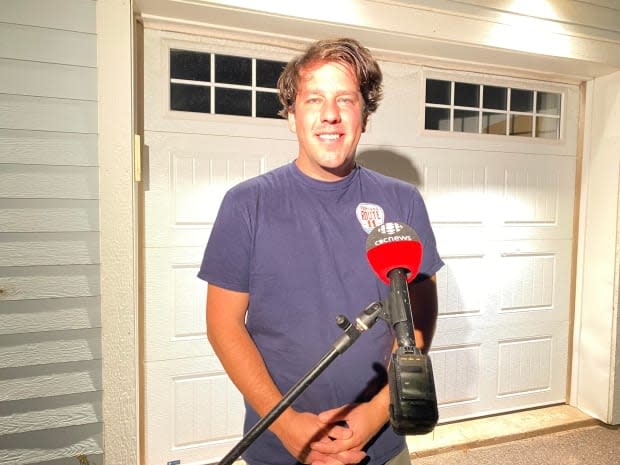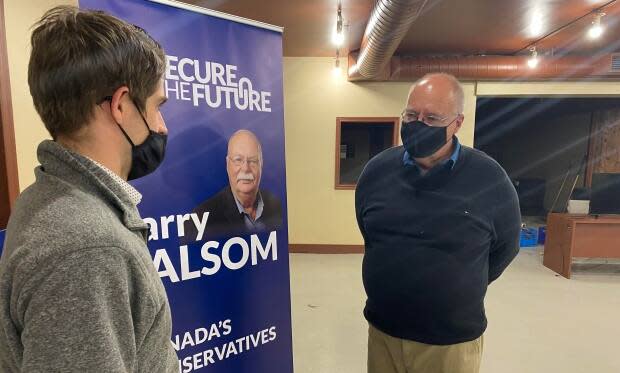Federal opposition parties still seeking cracks in P.E.I.'s red wall

For the ninth time in the last 11 federal elections, the Liberal Party of Canada has taken every seat on Prince Edward Island.
While Liberal support slipped nationally, the party's share of the vote actually rose a couple of points on the Island. None of the four races was particularly close, leaving the Conservatives, Greens and NDP battling for second place.
For the first time since 2011, the Conservatives ended up with a firm hold on that position. The party placed second in all four ridings this time, after managing to do that only in Cardigan and Egmont two years ago.
But the Conservatives, about 14 percentage points behind in the popular vote, are far from threatening a streak of Liberal dominance that stretches back to 1988, the start of Brian Mulroney's second term as prime minister. Since that election, only twice have Islanders elected an MP who wasn't a Liberal: Conservative Gail Shea in Egmont in 2008 and 2011.
Green vote halved
When Canadians went to the polls in October 2019, it looked like there might be a new contender to challenge Liberal dominance in the country's smallest province.
On the heels of a provincial election in April of that year that made the Green Party the official Opposition on P.E.I., the Greens took second place in Charlottetown and Malpeque federally. In terms of the popular vote, they still lagged behind the Conservatives provincewide, but the party's vote growth was remarkable.

The party earned about six per cent of the federal vote on the Island in 2015, and that grew to more than 20 per cent in 2019. This election, that vote was cut in half, with the other votes being spread among the Liberals, the Conservatives and the NDP.
While it is impossible to know why much of the Green gain disappeared, trouble at the federal leadership level — with the party's federal council making a number of attempts to remove leader Annamie Paul — likely did not help.
Polls by Narrative Research showed growth in party support at the federal level beginning to fall off in August, at the same time the leadership troubles were at their height.
Charlottetown candidate Darcie Lanthier said the leadership controversy was absolutely an issue, but she does not expect long-term implications.
"I think it was a really short-term issue, what happened," said Lanthier.
"We're going to fix the things that went wrong at federal council with the national party and then we'll move forward from there."

Egmont candidate Alex Clark said the quick campaign made it difficult for the Green Party to get their message out, given the party's limited resources.
"It was so quick," he said. "The other parties have so much resources and time and money."
Lanthier also mentioned the shortness of the campaign, noting a health issue meant she got a late start on the campaign.
"I probably got the result I deserved because I really did not put in four months knocking on every door," she said.
While Lanthier is back serving on the federal council, she said she does not intend to run as a candidate again.
Conservative gains
While the Conservative Party did better in 2021, it fell well short of winning a seat, coming no closer than eight percentage points.
Charlottetown Conservative candidate Doug Currie got an early start, declaring his candidacy 10 months in advance, but he said there was a big gap to close, and even that wasn't enough time.
"I made the decision to run for the Conservative Party and I have no regrets," said Currie.
"You learn in this business there are things that are completely out of your control."
There were some wedge issues, he said, but declined to get specific.

Egmont Conservative candidate Barry Balsom also made reference to the groundwork that needed to be done for the party, saying it is now much more organized in his riding and better prepared for the next election. With another minority government in place under Justin Trudeau, he expects that in about 18 months.
A more moderate Conservative Party under Erin O'Toole is well placed to win more votes on P.E.I., he said.
Provincial lessons?
With small growth in Liberal support and a collapse for the Greens, it is tempting to consider what that might mean for the two parties provincially.
In 2019, the provincial Liberals were reduced from government to third-party status, while the Greens became the Official Opposition for the first time anywhere in Canada. Do the results of this federal election suggest a reversal in fortunes?
Historically, there has been little to connect federal and provincial politics on the Island.
While Liberal dominance in P.E.I.'s federal ridings began while Liberals were in power provincially, it survived 10 years of a Tory government under Pat Binns without a slip. The one crack in the red wall came in 2008, with Shea's election in Egmont. That came just one year after Liberal Premier Robert Ghiz came into power.
The return of the Progressive Conservatives to power under Premier Dennis King in April 2019 also had no apparent impact, followed just a few months later by another federal Liberal sweep.
That history strongly suggests that the political fortunes of the provincial parties are in their own hands.

